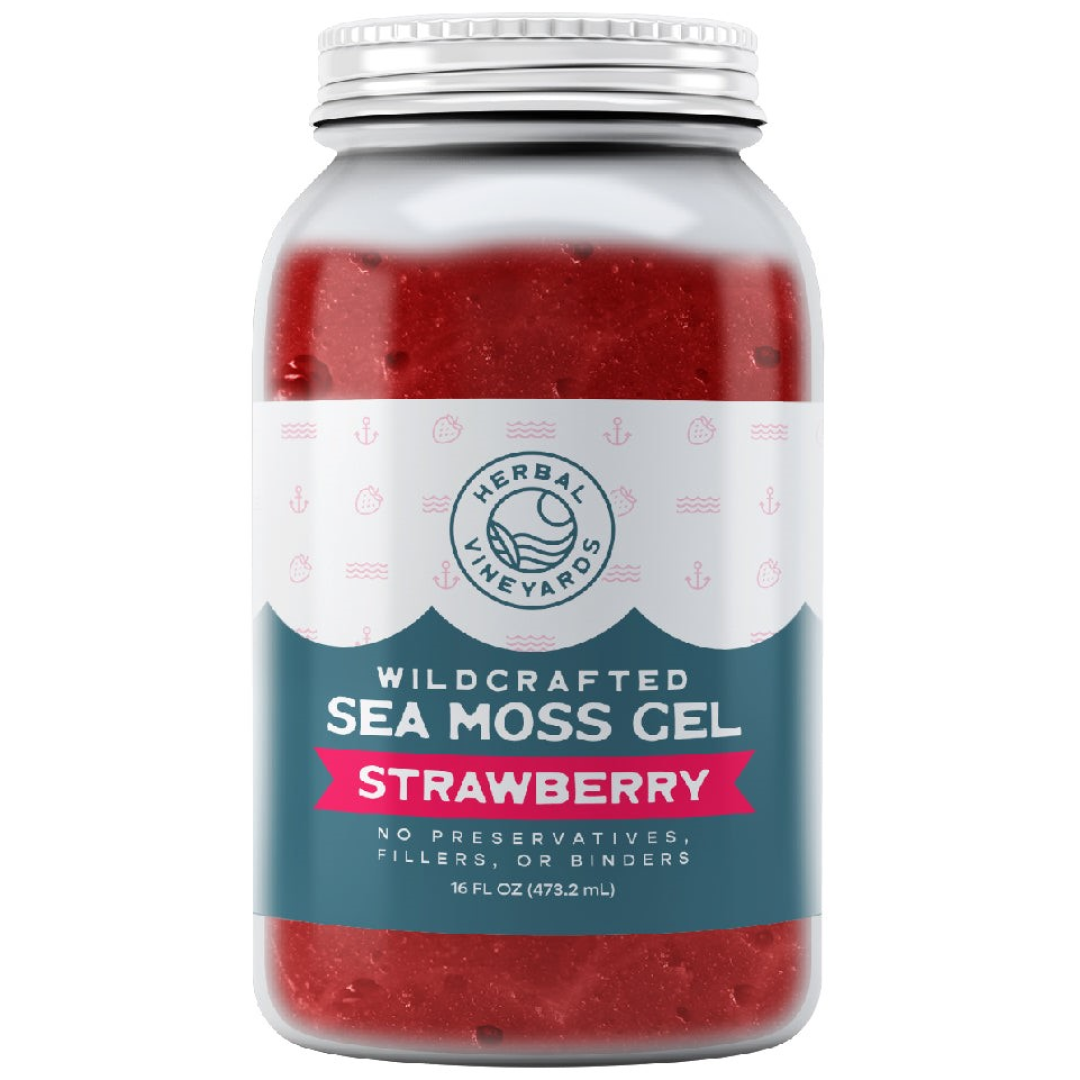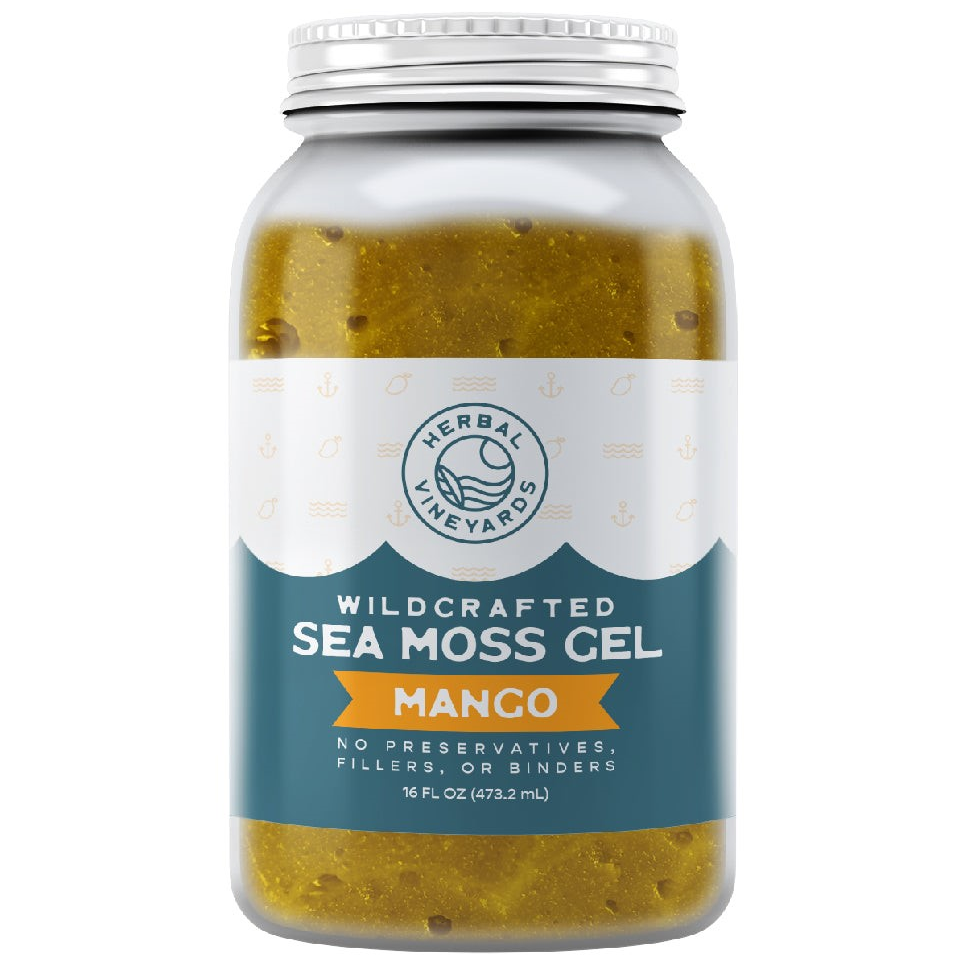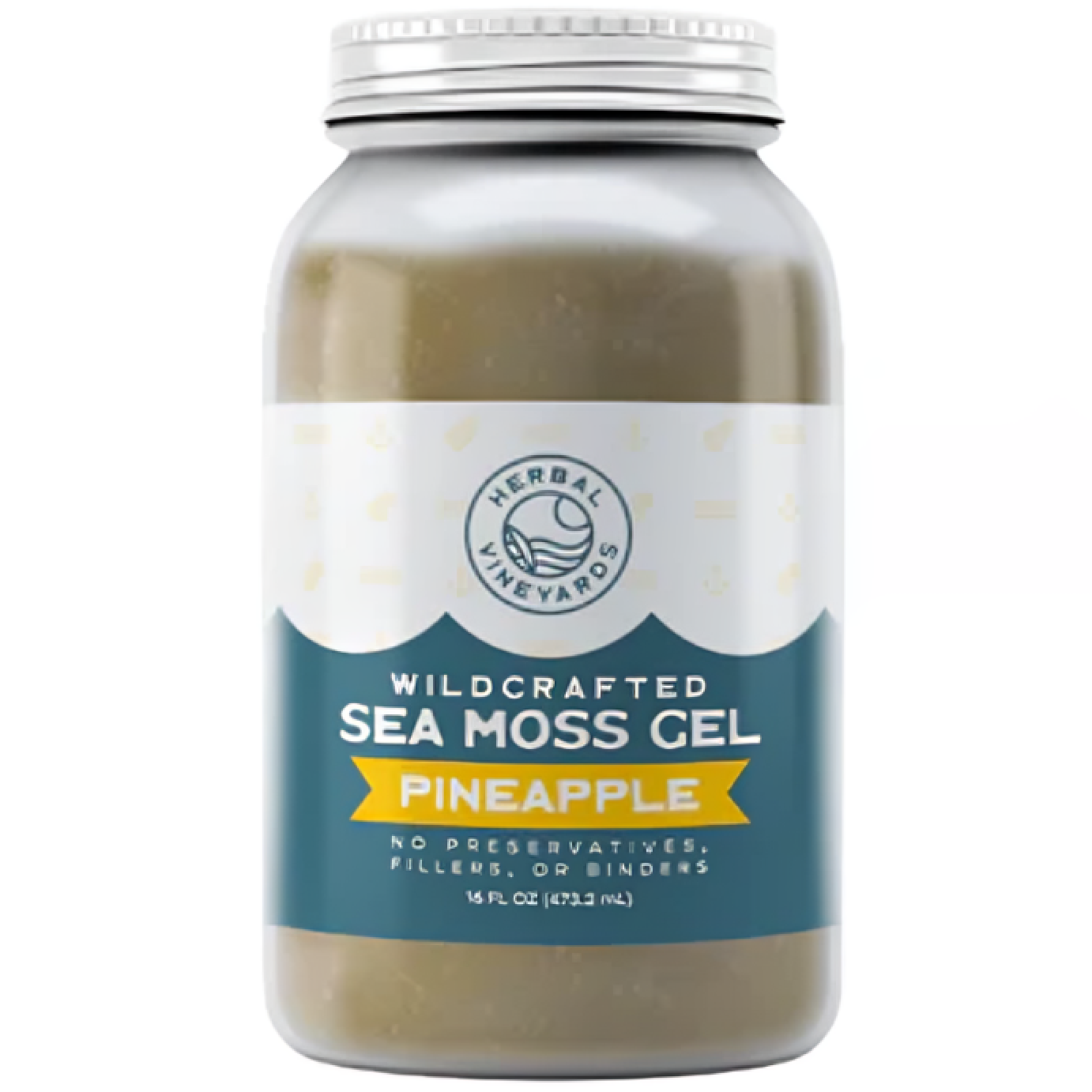Sea Moss vs Spirulina: Nutritional Benefits and Key Differences
With the growing love for natural supplements, two major names have been surfacing on the internet: Sea Moss and Spirulina. Both are popular choices for people seeking optimal health benefits and nutrition.
Both, derived from underwater, have been loved because of their respective nutritional profiles, health benefits, and culinary uses. But how to understand which one is the right supplement for you?
Let’s read the following guide on sea moss vs spirulina to finally land on the answer that works in your favor.
What Is Sea Moss?

Also known as Irish moss or red seaweed, Sea Moss (Chondrus crispus) is a marine vegetable similar to seaweed and algae. It is commonly found along the rocky Atlantic coasts, primarily between North America and Europe, in various colors such as green, yellow/gold, red, and purple.
It is usually harvested to extract carrageenan, a jelly-like substance often used by the food industry as a thickener. It is often available in ice cream, non-dairy milk, cottage cheese, jelly, and even toothpaste, shoe polish, and infant formula.
With the goodness of minerals, vitamins, and antioxidants, this vegan, gluten-free aquatic substance undoubtedly has many health benefits.
What Is Spirulina?

A blue-green algae, commonly known as Spirulina, is a superfood packed with vitamins, minerals, carotenoids, antioxidants, and protein. It is a key ingredient with antioxidant and inflammation-fighting properties that help regulate the immune system.
Spirulina is used these days to boost the levels of nutrients and antioxidants in the body, which help create a protective shield against various diseases and allergic reactions.
This well-known substance is made from an organism that grows in both fresh and saltwater.
Did You Know?
Spirulina was consumed by the ancient Aztecs but became popular again when NASA proposed that it could be grown in space for use by astronauts.
Nutritional Benefits of Sea Moss
Sea moss is a fat-free source of 92 of 102 essential micro and macronutrients - vitamins, minerals, and a small amount of plant protein. Some of the key nutrients available in this seaweed are:
- Vitamin B [folate (B9) & cobalamin (B12)]
- Vitamin C & A
- Calcium
- Iodine
- Bromine
- Potassium
- Phosphorus
- Sodium
- Magnesium
- Zinc
- Antioxidants
- Fiber
- Omega-3 & Omega-6
A 4-tablespoon (20-gram) serving of raw sea moss provides the following:
- Calories: 10
- Protein: 0.5 grams
- Total Fat: 0 grams
- Total Carbs: 3 grams
- Fiber: 0.5 grams
- Total Sugar: 0 grams
- Calcium: 1% of the Daily Value (DV)
- Iron: 10% of the DV
- Magnesium: 7% of the DV
- Phosphorus: 2% of the DV
- Zinc: 4% of the DV
- Copper: 3% of the DV
Potential Health Benefits Of Sea Moss
Commonly consumed in the form of pills or gel, Sea Moss is an important supplement that benefits bodies in many ways:
1. Supports Your Immunity
Sea moss can help boost your immune system with a high content of antioxidants and vitamins. It allows your body to fight off infections, viruses, and other diseases. Sea moss gel is a great detox ingredient that helps the body flush out toxins and combat free radicals.
2. Maintains Thyroid Health
Seaweed, rich in iodine, a mineral essential for the proper functioning of the thyroid gland, helps people with hypothyroidism (when the body doesn't make enough thyroid hormones).
3. Support Weight Loss
With the availability of dietary fiber, seaweeds can help you feel full, prevent you from overeating, and maintain your weight. Besides, sea moss’s compound fucoxanthin may have anti-obesity effects.
4. Maintain Blood Sugar Levels
The compound fucoxanthin in seaweed is found to help with the reduction of high blood sugar levels.
5. Enhances Gut Health
Sea moss even improves the production of good bacteria in your gut, maintaining overall health. It regulates the body's metabolism and processes like heart rate and breathing.
6. Improves Skin Quality
Whether ingested or applied directly, sea moss gel nourishes and soothes skin. It addresses common conditions like eczema, wounds, scabs, burns, psoriasis, and acne and skin issues such as premature aging, dryness, and flakiness. Sea moss is well known as the best plant-based source of collagen.
7. Keeps Dietary Balance
With its richness of various micro and macronutrients, sea moss is a great ingredient that fills the body’s nutritional gaps when consumed daily. It, in short, improves overall health, preventing the development of conditions caused by dietary deficiencies.
8. Improves Bone Health
The anti-inflammatory properties of sea moss gel help reduce joint inflammation, making it beneficial for arthritis patients. Its richness in calcium and magnesium strengthens bones, promoting overall bone health.
9. Increases Energy Levels
The nutrients and antioxidants in sea moss naturally enhance the body’s energy levels. Besides, vitamins and minerals fuel the body, keeping it revitalized throughout the day.
10. Aids Muscle Recovery
With its rich nutrient profile, including essential minerals and vitamins, sea moss is a popular supplement among athletes and those with active lifestyles. Incorporating sea moss into everyday diet helps replenish nutrients lost during intense physical activity. The inflammatory properties also support faster recovery, reducing muscle soreness and fatigue.
Nutritional Benefits of Spirulina
With the richness of many micro and macronutrients, Spirulina is a great supplement for boosting overall health. After a long research, we have figured out the following nutrient chart of Spirulina:
- Vitamin A, B6, & K
- Magnesium
- Potassium
- Manganese
- Protein
- Riboflavin (Vitamin B2)
- Niacin (Vitamin B3)
- Folate
- Fat
- Copper
- Iron
- Thiamin (Vitamin B1)
- Omega-6 & Omega-3 Fatty Acid
A single tablespoon (tbsp), or 7 grams (g), of dried spirulina powder contains:
- Protein: 4 g
- Thiamin: 14% of the Daily Value (DV)
- Riboflavin: 20% of the DV
- Niacin: 6% of the DV
- Copper: 47% of the DV
- Iron: 11% of the DV
- Calories: 20.3
- Carbohydrate: 1.67g
- Fat: 0.54 g
- Vitamin C: 0.7 mg
- Sodium: 73.5 mg
- Potassium: 95.2 mg
- Phosphorous: 8.26 mg
- Magnesium: 13.6 mg
Potential Health Benefits of Spirulina
With the richness of plant-based protein Phycocyanin, vitamins, minerals, and fatty acids, this blue-green color supplement is great for you. Here are some of the potential health benefits it brings your way:
Improves Heart Health
Intake of spirulina reduces the absorption of cholesterol in the blood, keeping your arteries clear and leading your heart toward a healthier lifestyle.
Anti-Allergen
The antioxidants in spirulina help with allergies caused by animal hair, dust, and pollen. They even minimize symptoms like congestion, sneezing, and itching.
Improves Muscle Endurance
Magnesium in spirulina supports the everyday functioning of muscles. It is even responsible for producing energy and endurance for heavy-duty physical activities.
Weight Management
Having some amount of spirulina in an everyday diet can help reduce body mass index (BMI), body fat, waist circumference, appetite, and blood lipids. It even prevents the small intestine from absorbing much fat.
Texture, Taste, and How They're Used - Sea Moss vs Spirulina
Sea Moss
According to a study, 4 grams of sea moss per day is typically safe for consumption, but it is best to check with your doctor, especially if you have hyperthyroidism or hypothyroidism.
Forms Of Taking Sea Moss Supplement
- Gel
- Gummies
- Capsules
- Raw
Whatever version of sea moss supplement you choose is to pick is entirely up to you.
Taste & Texture Of Sea Moss
- Fishy Taste
- Slimy Texture
The taste of the raw sea moss might be a little earthy and underwater-like. But the best thing is that you don’t get much of its original taste in its supplements.
The gel form of the moss has a slick and thick texture, like that of the aloe vera. This form of the supplement has introduced a lot of natural flavors in the market, making it a slightly tastier option.
Ways To Consume
- Sea moss is commonly consumed mixed with other ingredients of food items such as smoothies, candies, coffee, baked goods, and more.
- You can apply it straight to your skin, hair, and scalp.
Spirulina
According to NIH, people taking spirulina by mouth must not exceed the dose of 19g per day if taken for about two months and up to 10g per day if taken for a maximum of six months.
Forms Of Taking Spirulina
- Pill
- Powder Form
- Flakes
Although all the forms are good but the best way is to add powder to your favorite dishes.
Taste & Texture Of Spirulina
- Mild, Earthy Taste
- Thick & Creamy Texture
- Mild Odor
Everyone might not like spirulina’s taste and odor, but it is sure something that takes time to grow on your taste buds.
Ways To Consume
There are many ways to consume spirulina, from mixing it in smoothies to preparing salad dressings and mixing with the base of the baked goods to mixing it with drinks. No matter what you want to have, you can include this nutritional supplement in your meal, keeping the quantity in mind.
Can You Use Both Together?
Although sea moss vs. spirulina benefits is a long-going debate, but did you know you can incorporate both of them together?
Yes, you heard it right. You can actually include both the gel and spirulina together to provide your body with a wide range of nutrients and health benefits. These supplements complement each other pretty well! However, before starting this routine, be sure to consult your doctor or start with just one at a time to see how it works for you.
Again, both supplements are safe, but it is best to consume them in moderation to avoid unwanted side effects.
Sea Moss Gel Vs Spirulina: Which Superfood is Better for You?
Sea moss gel and spirulina are both popular superfoods, each with its unique benefits. Sea moss gel is rich in iodine and can support thyroid health, while spirulina is a great source of protein and antioxidants.
Sea moss gel is a good option if you're looking for a thyroid boost. For a protein and antioxidant boost, spirulina is a great choice. However, consulting with a healthcare professional before making significant dietary changes is essential to ensure they align with your individual needs and health goals.







